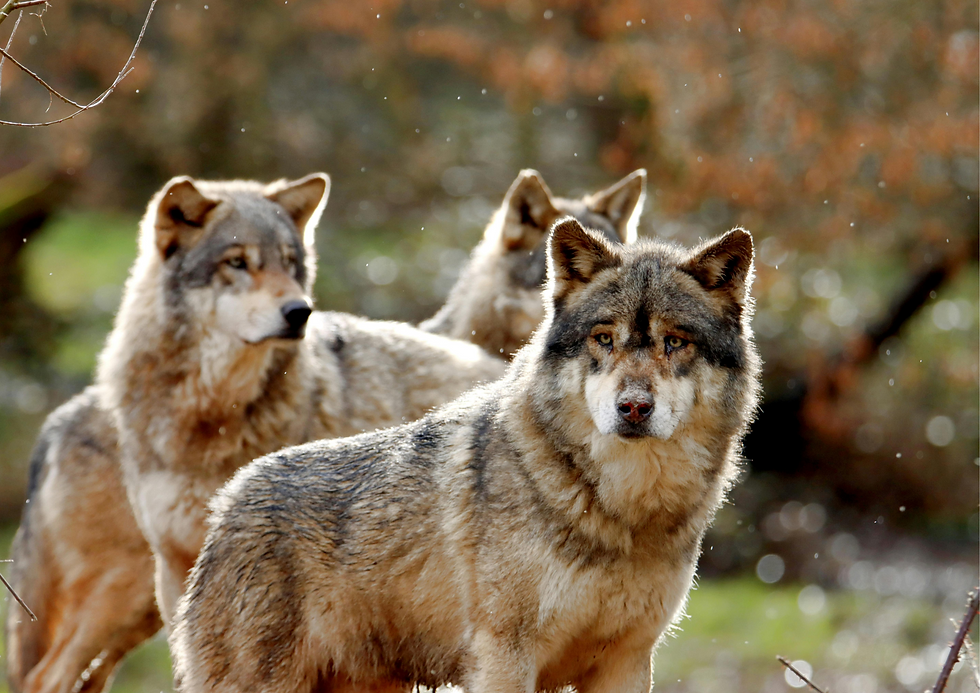10 reasons to go vegetarian right now
- Aug 24, 2015
- 3 min read
Updated: Jan 8, 2024
I remember the first time I saw a cow factory farming video my freshman year in college. I gave up beef on the spot and have gradually moved toward veganism ever since. My initial desire stemmed from a childhood instinct of loving animals and not wanting to harm them. But all these years later, I now know the issue goes way beyond that. The factory farming industry damages not just the animals, but our world, too. And it seems to be getting worse.
Our society was literally founded upon filling our bellies with meat (Thanksgiving, anyone?), but times have changed; the world is different now. Many scientists argue whether eating meat is even sustainable. Though many of us still aren’t ready to alter our thinking, for those who are, I’m here to tell you there is another way—a healthier, ethical way. Though this isn’t an exhaustive list by any means, here are 10 ethical reasons to go vegetarian today:
1. Animals are sentient beings. As I’ve mentioned before in this article about Jane Goodall, animals feel emotions just like us—pain, sadness, happiness, distress and so on. Of course, many animal lovers already believe this in their hearts to be true; but thankfully, governments are starting to recognize this, too. New Zealand, for one, has formally recognized that, legally, citizens must “recognize animals as sentient”—a change that will surely lead to stricter animal-welfare laws, harsher punishments for animal abusers and limitations on animal testing, as well as elevate the way animals are viewed in society. France and Quebec are also leading the way.
2. Reduced health-care costs: If the entire country shifted to a plant-based, whole-foods diet, “We could save 70 percent on health-care costs,” said Farm Sanctuary founder Gene Bauer on a recent episode of Daily Show.
3. Save water: Nearly 50 percent of all water used in the U.S. goes toward raising animals for food, according to The Food Revolution by John Robbins, a bestselling author and founder of EarthSave International.
4. Save land: Every 60 seconds, seven football fields’ worth of land is bulldozed to make room for farmed animals, according to researchers at the Smithsonian Institute.
5. You’ll boost your longevity. While it’s no guarantee, vegetarians and “semi-vegetarians” (those who eat meat only occasionally) live a whopping 20 percent longer than carnivores, according to this wide-ranging study.
6. Vegetarians are less likely to be obese. Perhaps because they statistically eat fewer plants, meat eaters are more likely to suffer from weight problems and a higher BMI, which has been connected to a whole host of health problems (some mentioned in this article). The study, by Loma Linda University in California, found this to be true even when the caloric intakes were the same.
7. A lower risk of colon cancer. In a different study, researchers at Loma Linda University found that vegetarians are also less likely to get colon cancer.
8. Vegetarians have lower blood pressure, according to this 2014 study published in the JAMA Internal Medicine journal.
9. Exposure to harmful bacteria and toxins: Even with regulations in place by the FDA and USDA, food safety is still a concern. Beef, chicken and other kinds of meat run the risk of being tainted with Salmonella, E. coli and other types of harmful bacteria. Not to mention antibiotics, various chemicals and hormones.
10. Meat Free Monday: For many, cutting out meat completely is out of the question; they’re just not ready. Enter the Meat Free Monday movement, supported by Sir Paul McCartney and others. The goal? Stop eating meat just once per week, and you’ll “reduce your carbon footprint and improve your health.” The Meat Free Monday website offers lots of inspiring tips, recipes, videos, photos and more to help you get started.
What are your reasons for not eating meat (or limiting your meat consumption)?




Comments